Making $$ Editing Freelance With Your Skills

By G. Miki Hayden
Instructor at Writer's Digest University online and private writing coach
firstwriter.com – Wednesday October 28, 2020
Writers can always use “extra” dollars, and these days the “extra” is very much necessary. Okay, we may not know how to do much other than push words here and there, but if we do that well, our abilities, honed over the years, may bring in the hoped-for bucks—freelancing as an editor for other writers. The nice thing about taking on projects this way is that we can sleep late and work at home in our sweats, another important point these days. Some of us do it, so why not you?
Having the talent to do the work is the starting point for the would-be freelancer. But don’t fool yourself. Not all writers are editors. Just because you can write a publishable novel (even one not published yet) doesn’t mean you can tell somebody else how to do the same thing.
What makes a good fiction editor? Long-time editor Mary I. Kilchenstein (AKA Mary Kirk) details this frankly: *The ability to make someone else’s story and characters your own, just as if you yourself had created them. *The detachment to remember that the story and characters aren’t yours and that their creator has final say over what happens to them. *The ability to pinpoint the exact problems standing in the way of a manuscript being published. *The ability to articulate the identified problems so that it’s useful to the author. *The imagination to find workable solutions that make sense. *The judgment not to overwhelm—and maybe paralyze—the client by telling her more than she can deal with. *The courage and the integrity to tell the truth, even when the truth may be that the manuscript will require major revisions. *The compassion to know how to deliver bad news in a friendly but unemotional, considerate but straightforward manner.
“A spoonful of sugar helps the medicine go down,” notes Kilchenstein who is so tactful that clients thank her for thirty-five page revision letters saying, in essence, “Bury it.”
Katriena Knights further reminds would-be freelancers, “An editor needs to be willing to let the author breathe. In the end, it's her book, not yours, though it can be hard for the editor to let go. You need to be able to allow other writers to keep their own voices and styles without forcing your own on them.” She also suggests that when a freelancer takes on a job, she has to be disciplined in meeting deadlines, and be organized so the little details don't fall through the cracks.
Editors should additionally be fairly knowledgeable about markets, and somewhat intuitive in regard to each particular author's strengths and capacity.
Mostly, a bottom-line requirement for a freelance word-worker is a thorough grasp of the technical side, particularly grammar and punctuation.
Finding the Jobs
Those loaded with the outlined skill-set will want to be underway immediately. So where are the jobs found?
A “ton” of freelancing opportunities exist out there, states Knights. She advises searching online under the keywords “freelance writing and editing jobs,” where you’ll find a collection of website portals. At these, you can either set up an account and bid on work, or have access to lists of available projects.
Other than that, network all over the place—plus you may often receive referrals from satisfied clients.
The Dollar Payoff
The next big question is what to charge. Understanding that writers are often strapped for cash, try to keep your rates at a reasonable level. I’ve found that most work with clients is either by word count (the fairer option) or by the (defined in terms of format) page. And I say add in a certain amount for particularly difficult work. If the client writes without knowing the rules of the road—punctuation and such—the job will take longer and so the editor may add a charge on that account. The charge should be agreed upon by both parties at the start of the project.
Knights has a certain pay scale in mind when she bids on work, and she notes, “One of the problems with freelance portals, overall, is that a ton of people out there expect to pay extremely low rates for work. I bid high, because I want to be able to make a living.” (Knights now has her client base and isn’t seeking further editing jobs.)
Publishers often have set fees or hourly rates for projects they assign to freelancers, so you take it or leave it.
Affect on the Novelist’s Own Writing?
Knights finds that her editing jobs have improved her own writing, since this makes her more alert to all the little details. Further, “Sometimes I'll ding somebody for a plot point and go oh, wait, I did that same thing in such-and-such. So, yes, a lot of learning goes on as you edit other folks' work, and that definitely can come out in your own writing.”
Kilchenstein echoes the finding that editing can improve the editor’s own writing. However, she says, “It’s also made writing a thousand times harder for me. In the first place, I can’t think about more than one story and set of characters at a time, whether they’re mine or somebody else’s. So when I’m editing, I can’t write—period.” At the same time, the analytical part of her brain goes into overdrive with the editing and she needs some space afterward to return to a better balance of creative and analytical “sides”.
Thus, while the requirements for doing this sort of work may seem the same as those for sainthood, and the work can be stringent, it can also be rewarding—both in terms of helping others to create some wonderful written works and in making those so-called “extra” dollars.
Using an Editor?
What can you expect as an author looking for an editor’s help with a project?
*Editors do want to make money but their time is limited. They can only work on so many projects per year. Therefore, they have to deem projects worthy before taking them on. Don’t feel insulted if you’re rejected by the editor. That mostly means the fit wouldn’t be a good one. Go down the line and try the next person recommended.
*Deciding on the fit works both ways. You can ask for a small sample of the editing—maybe a page—in order to see what you’re getting yourself into. Even then should you decide to go ahead, if you’re not convinced this is the right editor, make a small commitment to start rather than asking to have the whole work edited. You should be able to tell after an hour or two of editing whether you and the freelancer click.
*Money is one of the major considerations for most authors. You want to have the best manuscript possible to send out but does that mean you have to spend thousands of dollars? A reasonably good editor shouldn’t cost the author a king’s ransom—more expensive doesn’t necessarily mean better skills (don’t be intimidated)—but cheaper isn’t always better, either. Cheaper might mean the editor’s skills aren’t strong, but more expensive can simply mean someone with a good reputation who may or may not be better than a less pricey freelancer.
*You can expect to have the editor set a fixed fee and a finish date before starting to work. While a date might change due to emergencies, it shouldn’t shift by weeks or months. You might want to build some recourse into your agreement, though most freelancers will honor any deadlines set. You should also anticipate having to send your freelancer a deposit of at least half the total upfront, and you may have to send the remainder before completion of the second part of the work.
Generally speaking, the editing of a manuscript means one go through, which also means the results won’t be absolutely pristinely perfect. If you want perfect, that means more than a single draft—and a much higher pay scale for the editor. (I do a second go-through anyway because I invariably miss something and that bothers me.)
Do you really want an editor to work on your writing? Yes, you well may. A career as a writer ultimately is about the selling. If you have some writing weaknesses, and we all do, then turn to a professional to help you out. Many authors do just that, for the competitive advantage.
For details of firstwriter.com's editorial services, and for an instant online quote, click here
About the Author
G. Miki Hayden is a short story Edgar winner. She teaches a mystery writing and a thriller writing and other writing classes at Writer's Digest online university. The third edition of her Writing the Mystery is available through Amazon and other good bookshops. She is also the author of The Naked Writer, a comprehensive, easy-to-read style and composition guide for all levels of writers.
Miki's most recent novel out is Respiration, the third book in her Rebirth Series. The New York Times gave her Pacific Empire a rave and listed it on that year's Summer Reading List. Miki is a short story Edgar winner for "The Maids," about the poisoning of French slave holders in Haiti.
"Holder, Oklahoma Senior Police Officer Aaron Clement is out for justice above all, even if he irritates the local hierarchy. Hayden in Dry Bones gives us nothing-barred investigation and plenty of nitty-gritty police procedure—which makes for a real page turner." — Marianna Ramondetta, author of The Barber from Palermo




 4 Ways Good Editors Improve the Freelance Writing Experience
4 Ways Good Editors Improve the Freelance Writing Experience 3 Ways to Price Your Work for Your Freelance Writing Business
3 Ways to Price Your Work for Your Freelance Writing Business Making a success of your writing
Making a success of your writing Self-Editing Tips for Writers: Polishing Your Manuscript Like a Pro
Self-Editing Tips for Writers: Polishing Your Manuscript Like a Pro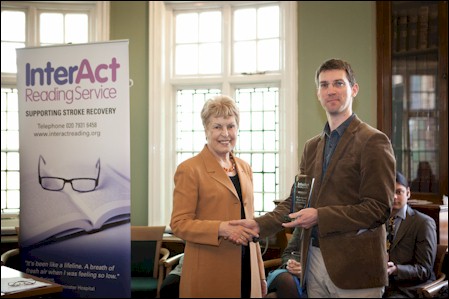 firstwriter.com subscriber wins Ruth Rendell Short Story Competition
firstwriter.com subscriber wins Ruth Rendell Short Story Competition Making a living from writing, writing from making a living
Making a living from writing, writing from making a living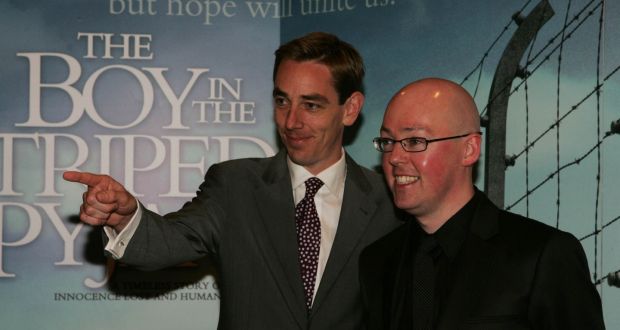 Is making a living just from writing books a literary fiction?
Is making a living just from writing books a literary fiction? Is the Internet Making Writing Better?
Is the Internet Making Writing Better? Born of Friendship, the Book Group Is Making Its Mark as an Agency
Born of Friendship, the Book Group Is Making Its Mark as an Agency Five Steps to Writing a Crime Novel Inspired by Your Family (Without Making Everyone Hate You)
Five Steps to Writing a Crime Novel Inspired by Your Family (Without Making Everyone Hate You) Trying to write a novel? A Marrakech ‘book camp’ might unlock your literary skills
Trying to write a novel? A Marrakech ‘book camp’ might unlock your literary skills No more excuses!
No more excuses! How I got a literary agent - An interview with author James R. Larson
How I got a literary agent - An interview with author James R. Larson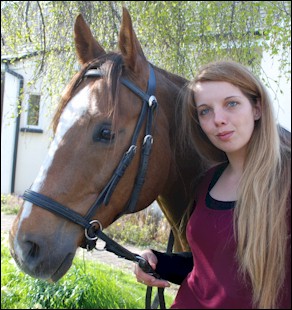 How I got a publishing deal - An interview with author, Rachel North
How I got a publishing deal - An interview with author, Rachel North New Literary Agent Listing: Gabrielle Demblon
New Literary Agent Listing: Gabrielle Demblon Reading Force is delighted to welcome submissions from adults, children and young people to its 2025 Memoir Writing Competition
Reading Force is delighted to welcome submissions from adults, children and young people to its 2025 Memoir Writing Competition New Publisher Listing: Cicada
New Publisher Listing: Cicada Calling all aspiring authors! Here's your chance to win a one-to-one session with a literary agent - plus £1,500
Calling all aspiring authors! Here's your chance to win a one-to-one session with a literary agent - plus £1,500 New prize for translated poetry aims to tap into boom for international-language writing
New prize for translated poetry aims to tap into boom for international-language writing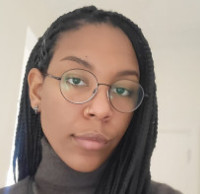 New Literary Agent Listing: Kaylyn Aldridge
New Literary Agent Listing: Kaylyn Aldridge TikTok parent ByteDance is shutting down its short-lived book publisher
TikTok parent ByteDance is shutting down its short-lived book publisher New Magazine Listing: And Other Poems
New Magazine Listing: And Other Poems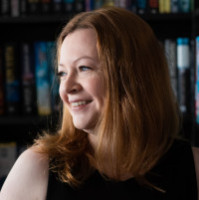 New Literary Agent Listing: Helen Lane
New Literary Agent Listing: Helen Lane UK audiobook revenue up by almost a third last year
UK audiobook revenue up by almost a third last year New Publisher Listing: Radio Society of Great Britain
New Publisher Listing: Radio Society of Great Britain New Magazine Listing: Emerge Literary Journal
New Magazine Listing: Emerge Literary Journal New Literary Agency Listing: Ghosh Literary
New Literary Agency Listing: Ghosh Literary New Publisher Listing: Hardie Grant
New Publisher Listing: Hardie Grant
